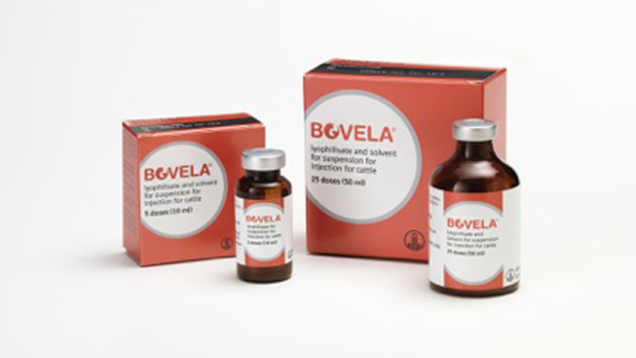New one-shot vaccine claims to make BVD control easier

A new bovine viral diarrhoea (BVD) vaccine that only requires one shot and protects cattle against BVD type 1 and 2 has been launched.
Bovela, from Boehringer Ingelheim Vetmedica, will be available to farmers from the start of April.
It could help make the management and control of BVD easier due to its one-shot dose, which can be used in cattle from three months of age and also when pregnant.
Currently, other BVD vaccines require a two-dose primary course with boosters annually or even every six months. It’s this feature that Allan Henderson of Boehringer Ingelheim Vetmedica claims will have a positive influence on BVD control.
See also: Find out more about BVD with FW’s e-learning course
“BVD remains the most common viral disease affecting cattle throughout Europe, despite vaccines being available for more than 15 years. We asked farmers why this was the case and, without exception, they remarked that current vaccine protocols are unwieldy, requiring precise timings, making them hard to follow,” he says.
In a recent BVD survey by Farmers Weekly, most farmers believed vaccination was the best way to eradicate the disease.
However, when commenting on the survey, vet Jonathan Reader, of Synergy Farm Health, Cornwall, said while vaccination was a part of any control, it was an area in which many farmers fall short.
“The big problem is that often the vaccine isn’t given correctly, because the interval [between doses of the primary course and between boosters] isn’t properly observed.”
BVD is spread within herds and to new herds through the presence of persistently infected (PI) animals.
PIs can look relatively healthy and show no outward signs of infection but, as exposed to the virus as a foetus, have become virus carriers. If they are born alive, they will shed the virus consistently throughout their lives so perpetuating the cycle of infection.
“The foetal control delivered by Bovela gives absolute confidence that cows will not produce PIs,” says Mr Henderson.
About 60% of cattle in the EU test positive for exposure to the BVD virus and, although BVD type 1 is currently the most common form, outbreaks of BVD type 2 were confirmed in 2013 and 2014 in Belgium, Germany and the Netherlands.
BVD type 2 is generally a more serious disease, with high levels of mortality, and while the virus has been identified in UK, it has not yet been identified as the cause of serious outbreaks of disease in cattle.
See also: Lessons to be learned from EU when eradicating BVD
“Bovela is the first and only vaccine in UK which has been proven to protect cattle from BVD type 1 and 2,” Mr Henderson adds.
“It has been in development for 17 years and has gained a marketing authorisation following assessment of an unprecedented quantity of data generated in both beef and dairy herds.
“Work has looked at the efficacy of Bovela in preventing the production of PI calves and against type 1 and 2 BVD, as well as confirming its efficacy in young calves as young as three months of age as their natural maternal protection wears off. Trials also confirmed vaccine safety generally and during various stages of pregnancy,” he adds.
Control of BVD depends on understanding farm BVD status, identification and removal of PIs, biosecurity and ongoing monitoring as well as vaccination. Seeking veterinary advice on how to best tackle BVD in your herd is the best starting point.
